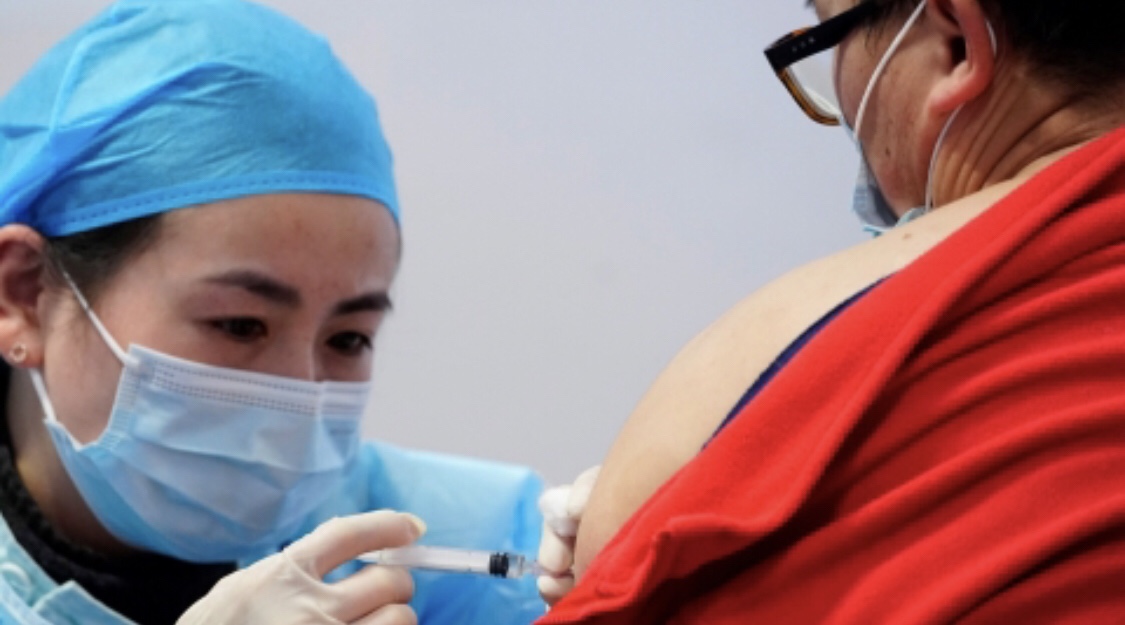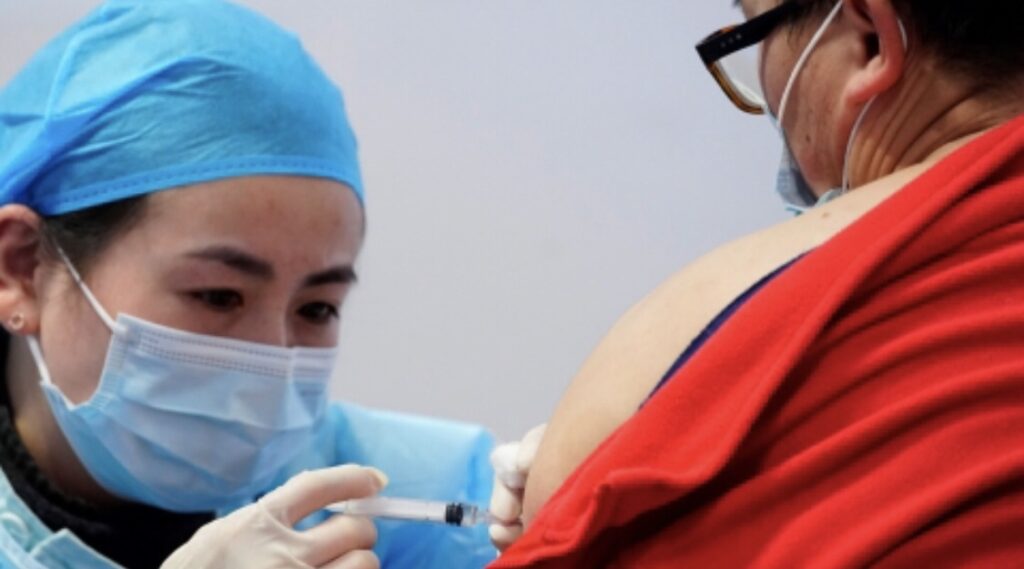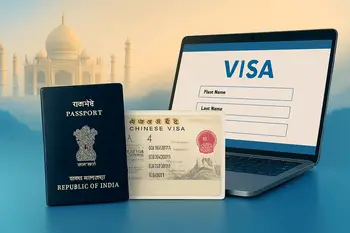

China has accelerated its vaccinations against COVID-19, administering 10 million doses in around a week, and is considering varied visa policies based on vaccination and virus conditions in different countries, officials said on Sunday.
The country had administered 74.96 million vaccine doses as of Saturday, health commission spokesman Mi Feng told a news briefing. That is up from 64.98 million as of March 14.
China aims to vaccinate 40 percent of its 1.4 billion people by the middle of the year, according to a top health adviser. China was among the first countries to begin administering vaccines last year and has been exporting millions of doses, but its vaccination rate has fallen behind those of such countries as Israel and the United States.
Chinese health officials appealed to the public to get inoculated. “Many people mistakenly think there is no practical meaning to be vaccinated because the epidemic situation is under effective control and the virus is far away from us,” said He Qinghua, a National Health Commission official.
He warned that no one is immune to the disease, and that with the pandemic still ravaging other parts of the world, imported cases could trigger fresh outbreaks in China.
Chinese officials want to get enough people vaccinated to achieve herd immunity. Because the outbreak was not widespread in China, a relatively small proportion of the population acquired immunity through past infection, He said. China’s mainland has reported 90,099 cases during the pandemic.
“Now that we have vaccines, we must let more people get immunity and protection through inoculation,” He said. “I once again suggest that people get vaccinated as soon as possible so as to acquire immunity.”
China is considering differentiated policies for visa issuance, flights and controls on the numbers of people arriving in China based on vaccination progress and the COVID-19 situations in different countries. “We do not exempt vaccinated people from testing and isolation measures for the time being,” said Feng Zijian, vice director of Chinese Center for Disease Control and Prevention.
But he said China will pay attention to international progress in developing “vaccine passports” and could adjust virus curbing measures after the domestic population reaches a high level of immunization.
The relatively low rate of vaccination in China was one reason Feng cited for maintaining the current measures for overseas arrivals. He also noted concerns about how effective vaccines are against new variants of the virus.
China’s full-year vaccine production can fully meet the needs of the entire country, Ministry of Industry and Information Technology official Mao Junfeng said, adding the supply of materials for vaccine production, including glass vials and syringes, is “relatively stable.”
Countries with high proportions of elderly people should be prioritized for vaccination, said Wu Zunyou, chief epidemiologist at China CDC.
China has approved four locally developed vaccines for general public use from Sinovac Biotech, CanSino Biologics and two units of China National Pharmaceutical Group (Sinopharm).
A fifth vaccine developed by the Institute of Microbiology of Chinese Academy of Sciences was approved last week.
Source: SHINE


